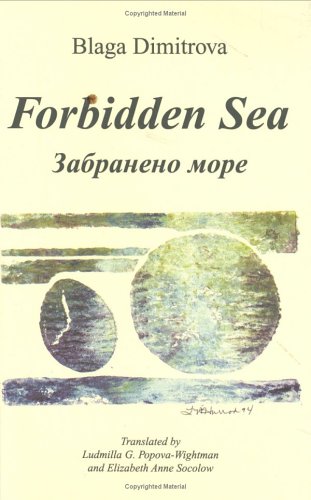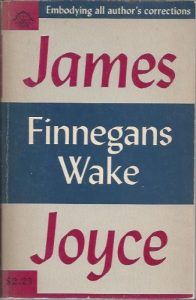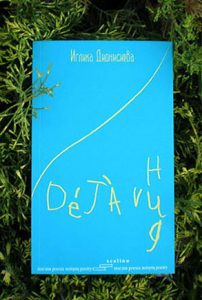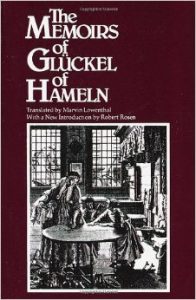Mathematicians and cryptographers seem to have a strange fascination for most people. Although their work is highly relevant (think of the Enigma codebreakers, or the computer pioneers) their abstract world is far removed from the ordinary life we all lead, and the geniuses in that field often combine extraordinary intellectual abilities in their specific field with an obsessiveness that borders insanity; borderline disorders, autism, paranoia and schizophrenia seem to be much more frequent among them as in the average population; and even when they are not mentally challenged they seem to act frequently odd and helpless in everyday-life situations. Mathematicians and cryptographers make therefore potentially excellent characters for many books and movies (think of A Beautiful Mind, The Imitation Game – a mediocre movie that distorts the real story of Bletchley Park and its protagonists almost beyond recognition -, or the brilliant π by Darren Aronofsky).
Also the hero of Mai Jia’s novel Decoded is a mathematician and codebreaker. Rong Jinzhen, the main character is an orphan that grows up in a provincial town in China under the guidance of a Mr Auslander, a foreigner that worked for decades in China as an English teacher. The rather isolated life of Mr Auslander and his advanced age seem not to be the best atmosphere for a child to grow up that shows already very early a rather strange and secluded character, although on the other hand, the old gentleman does his very best for the boy and is visibly very attached to him. (I was particularly touched when the author mentioned that on the day when Auslander decided to take the orphan into his home, he – already a rather frail old man – climbed a ladder and attached a swing for the boy at one of the trees in his garden.)
After Mr Auslander’s passing, the boy is taken in by some relatives. Due to his fantastic talents in mathematics, Rong Jinzhen is allowed to enroll in the local university which has a quite famous mathematics department founded by a member of the family of Rong Jinzhen. One of the teachers there, Professor Liseiwicz, a Polish-Jewish emigrant and famous cryptographer and mathematician, becomes Rong Jinzhen’s mentor. Liseiwicz, who wants to work in the field of artificial intelligence, sees in Rong Jinzhen a genius and treats him very different from other students – thereby creating suspicions that he wants to use the prodigy for his own work.
Although mathematicians of the calibre of Rong Jinzhen or Liseiwicz seem to live in an ivory tower, their work in a world of wars and secret communication is of extremely high importance to politicians and intelligence experts, and to secure their talents is a question of national security. And so we see Liseiwicz and Rong Jinzhen drift in different directions – while Liseiwicz leaves China in order to work in X country (Israel? The U.S.?) and perform work whose nature most people can only guess, Rong Jinzhen is taken away from his university to become part of a secret military research unit which aims at decrypting ciphers of enemy nations; Rong Jinzhen soon becomes the most important person in this unit. He breaks the high-level cipher PURPLE in a very short time and with the most unorthodox approach. But when another high-level cipher, BLACK, pops up, a real nightmare starts for Rong Jinzhen.
I don’t want to give away more of this story which is a real page turner. Mai Jia has been hailed as the Chinese answer to John Le Carré, and after reading this book I know why. Every comparison is a bit doubtful, but he for sure knows how to entice the readers with a fascinating story that encompasses more than half a century – turbulent times for China which had to face a civil war, a war with Japan, the communist revolution and the so-called Cultural Revolution that all left a deep mark on the characters of the book.
Books that are written by authors from such a complete different culture as the Chinese are for the reader not always easy to understand. Therefore I was a bit sceptical in the beginning if I would grasp all aspects of the story. But Mai Jia is telling us a universal story, the story of an extraordinarily gifted man, a man who is burdened by the fact that he is a genius in his field.
The portrait of Rong Jinzhen is that of a man with many facets. Although introvert and deeply obsessed by resolving the tasks and challenges he is facing in the strange world of cryptography, he shows great attachment to Mr Auslander (whom he calls Daddy) and later to his adopted family, particularly to his adopted mother and sister (whom he later saves from the pogroms of the Cultural Revolution); he reads the Bible and becomes a Christian, he reads also novels and books on many other topics, he interprets dreams of his colleagues and shows a genuine interest in games, particularly chess. With Liseiwicz he is developing a chess variation that is so complicated that it is only played by a small group of mathematicians. Surprisingly for everyone Rong Jinzhen even marries, although this marriage proves to be very unconventional.
It is also a story of the rise and fall of an extraordinary person, and thanks to the fact that the author presents us Rong Jinzhen not as an “idiot-savant” with an insular talent, but as a person with its incredible strengths and also weaknesses, his hopes and dreams, and also his almost unbearable loneliness (during his adult life he seems only to be connected with Liseiwicz and the only person he ever admired, the enigmatic German cryptographer Klaus Johannes, whose book is as it turns out is a sophisticated cipher in itself. and with whom he has a kind of dialogue in his dreams), the reader can relate to the main character and his fate even when he hasn’t got the slightest idea about ciphers and cryptography.
The description of the life of Rong Jinzhen in the headquarter of the cryptographic complex which seems completely isolated from the rest of the world and in which he spends the biggest part of his conscious existence without hardly ever leaving this area, has something suffocating, deeply depressing. Mai Jia created with this novel a unforgettable hero and a fascinating story with many unexpected twists.
A few minor remarks about certain aspects of the books that prevent me from calling it a masterpiece:
Liseiwicz supposedly met in his younger years an Austrian aristocrat with an interest in mathematics that wanted to build up and fund a research institute in Austria. While it is possible and therefore credible that such a person existed, it is extremely improbable that a member of the Hapsburg family (that was banned from entering Austria during that period and that would run into the risk of being arrested and have his property confiscated) would ever even have dreamt of doing this. This is simply impossible because of the particular legal position of the Hapsburg family in Austria after WWI.
ENIAC was one of the first computers to be built (in 1946), but of course not the first as the author claims. (Konrad Zuse completed the Z1 in 1938, and the Z3, the first Turing complete computer, in 1941.)
Chess and to some extent also Go play a certain role in the book. Liseiwicz and Rong Jinzhen play a lot of chess (in which Liseiwicz has practically grandmaster strength) and chess variations. But the explanation of the chess variation the two invented left me in the dark about the nature of this game. The same goes in general for the cryptographic part of the book. The descriptions are always very general, touching always more the surface of things – a little bit more information about how concretely the ciphers on which Rong Jinzhen worked would have been extremely interesting. As it is, the descriptions of the ciphers are as elusive as the main character of the book.
When the narrator meets late in the book Rong Jinzhen’s replacement at the research facility, this man from which the narrator gets important information on the later years of Rong Jinzhen and the cracking of the cipher BLACK, this man is described as a Go player that has become so strong that it was allegedly difficult for him to find opponents – he was considered to be too strong by almost anyone. That is of course a rather ridiculous claim. Go has contrary to chess a handicap system that levels the chances of players according to their kyu/dan grade. When you play a very strong player it means that the chances are nevertheless more or less equal because the stronger player has to play with a very high handicap.
These are small misgivings I have about the book, but it is definitely an entertaining read, a well-crafted story and it makes me curious to read more by this author and probably also more fiction by Chinese authors. The translation reads very smooth, but of course I cannot compare with the Mandarin original edition.

Mai Jia: Decoded, transl. Olivia Milburn and Christopher N. Payne, Penguin Random House 2015
© Thomas Hübner and mytwostotinki.com, 2014-5. Unauthorized use and/or duplication of this material without expressed and written permission from this blog’s author and/or owner is strictly prohibited. Excerpts and links may be used, provided that full and clear credit is given to Thomas Hübner and mytwostotinki.com with appropriate and specific direction to the original content.











 Facebook
Facebook RSS
RSS Twitter
Twitter